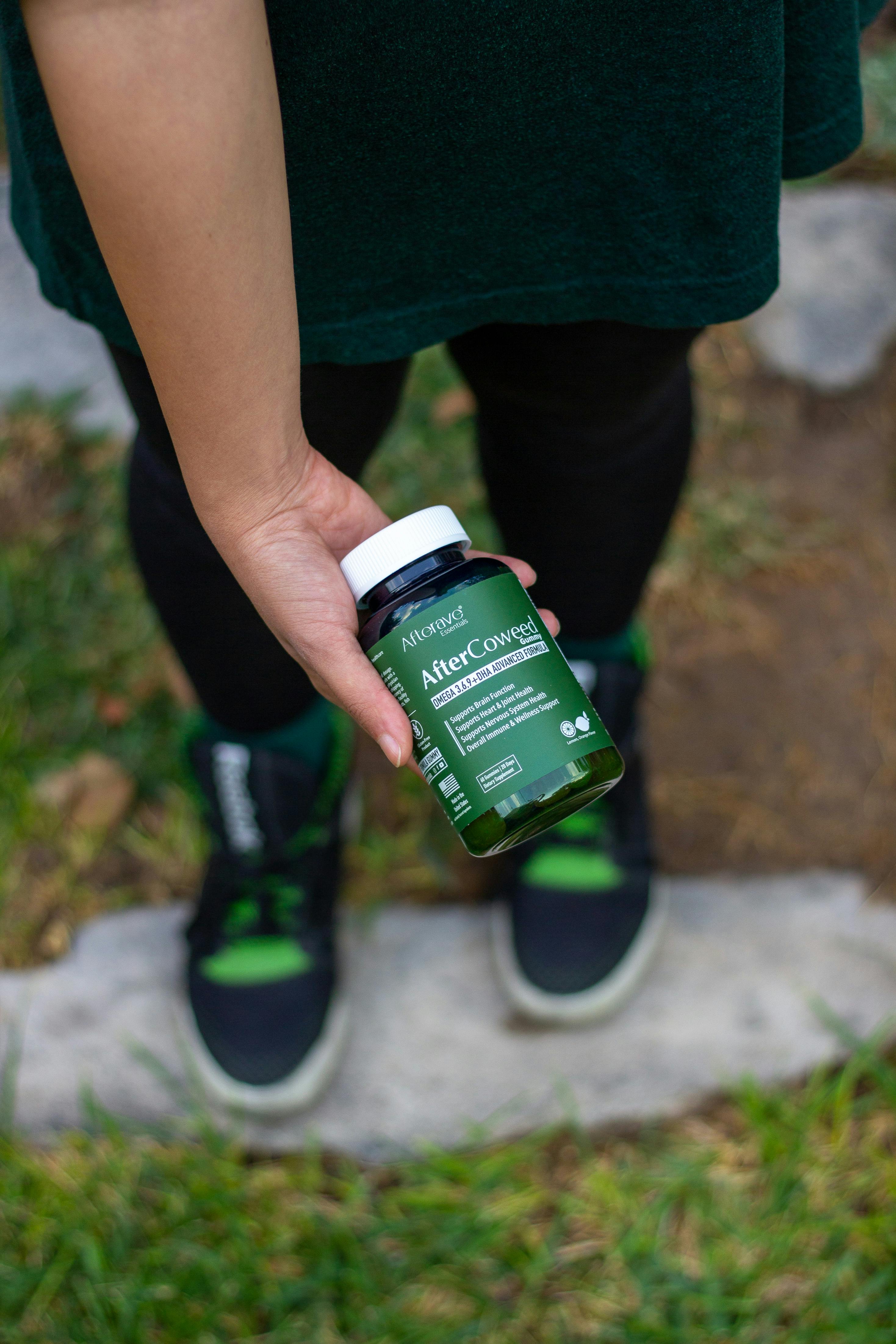Do Brain Supplements Really Work?
페이지 정보
작성자 Florence 작성일 25-09-20 02:31 조회 4 댓글 0본문
 Improved focus. Lower odds of developing dementia. Brain health is huge business. A 2019 report by the global Counsel on Brain Health projected that by 2023, people will spend greater than $5 billion a year globally on mind well being supplements. Advertising on our site helps support our mission. We do not endorse non-Cleveland best brain health supplement Clinic products or services. But can popping a pill actually enhance your brainpower? "The research in this space is in its infancy," says dietitian Maxine Smith, Mind Guard official site RDN, LD. "We don’t but have the info we have to make a suggestion about whether brain supplements work. Here’s what you should know before you buy supplements for your mind. Brain health supplements: Do they work? Many of the components in brain health supplements have been tied to mind well being indirectly. But much of the proof comes from analysis on meals and weight loss plan, not supplements, Smith says. "There are more than 25,000 bioactive substances in meals, which work together to guard your body together with your mind and processes that affect your brain," Smith says.
Improved focus. Lower odds of developing dementia. Brain health is huge business. A 2019 report by the global Counsel on Brain Health projected that by 2023, people will spend greater than $5 billion a year globally on mind well being supplements. Advertising on our site helps support our mission. We do not endorse non-Cleveland best brain health supplement Clinic products or services. But can popping a pill actually enhance your brainpower? "The research in this space is in its infancy," says dietitian Maxine Smith, Mind Guard official site RDN, LD. "We don’t but have the info we have to make a suggestion about whether brain supplements work. Here’s what you should know before you buy supplements for your mind. Brain health supplements: Do they work? Many of the components in brain health supplements have been tied to mind well being indirectly. But much of the proof comes from analysis on meals and weight loss plan, not supplements, Smith says. "There are more than 25,000 bioactive substances in meals, which work together to guard your body together with your mind and processes that affect your brain," Smith says.
 Still, you could be wondering in regards to the link between common brain booster substances and Mind Guard official site health. Here’s what the science says. Omega-3s are a kind of wholesome fats which are vital for a number of physique functions. They’re found in fatty fish, shellfish and plant sources like walnuts and flaxseed. Omega-3 fatty acids are necessary for heart health, and scientists are finding out whether they may additionally benefit the brain. It’s in all probability a greater guess to just order the salmon. Researchers have explored the hyperlink between cognition and vitamins B6, B9 and B12. But to this point, there isn’t proof that B vitamins improve cognition or forestall dementia. Most people get loads of B vitamins from their food regimen, Smith says. Some older adults are deficient in B12, however. In that case, a complement might benefit overall health, including mind well being. "If you take a daily multivitamin, Mind Guard official site it’s probably offering sufficient B-12, however it’s at all times greatest to debate supplements with your physician earlier than taking," she says.
Still, you could be wondering in regards to the link between common brain booster substances and Mind Guard official site health. Here’s what the science says. Omega-3s are a kind of wholesome fats which are vital for a number of physique functions. They’re found in fatty fish, shellfish and plant sources like walnuts and flaxseed. Omega-3 fatty acids are necessary for heart health, and scientists are finding out whether they may additionally benefit the brain. It’s in all probability a greater guess to just order the salmon. Researchers have explored the hyperlink between cognition and vitamins B6, B9 and B12. But to this point, there isn’t proof that B vitamins improve cognition or forestall dementia. Most people get loads of B vitamins from their food regimen, Smith says. Some older adults are deficient in B12, however. In that case, a complement might benefit overall health, including mind well being. "If you take a daily multivitamin, Mind Guard official site it’s probably offering sufficient B-12, however it’s at all times greatest to debate supplements with your physician earlier than taking," she says.
Vitamin E is an antioxidant that protects your cells from damage. In individuals who already have dementia, a every day supplement of vitamin E could sluggish the speed of decline. And there’s some proof that people who eat a weight loss program rich in vitamin E may be much less prone to develop dementia. But it’s not clear whether or not supplements would have the same benefit. What’s more, an excessive amount of vitamin E may be dangerous. "High doses of vitamin E supplements are related to an elevated threat of death," Smith says. Instead of supplements, she recommends a vitamin E-rich weight-reduction plan, with foods like nuts, seeds, dark green leafy vegetables and vegetable oils like sunflower and corn oil. Vitamins A, C and D are sometimes included in merchandise that claim to benefit the mind. But whereas these vitamins are necessary for total health, there’s no proof that they boost memory, cognition or mind health. That being mentioned, vitamin D is the "sunshine vitamin" and many people aren’t getting enough.
Vitamin D is a good one to discuss along with your physician. Ginkgo is an herb that’s lengthy been popular as a supplement for cognitive well being. But a big research of more than 3,000 contributors discovered that ginkgo was no better than a placebo at stopping dementia in older adults. And in people who already had dementia, ginkgo didn’t do anything to sluggish the rate of cognitive decline. Plus, ginkgo could work together negatively with other medications. In other words, you need to most likely skip this herb. Should you're taking a brain complement? What about all those over-the-counter brain supplements that declare they’re proven to benefit your brain? "Take those claims with a grain of salt," Smith says. Supplements are loosely regulated in the U.S., so there’s no guarantee they do what they claim to do. The studies executed by manufacturers aren’t all the time properly-designed, Smith says. And a few supplements may contain elements at doses that could possibly be dangerous. "They might even be tainted with contaminants like heavy metals that can be dangerous," she provides.
Diet. Nutrition is top-of-the-line ways to guard your brain, Smith says. She recommends a food plan wealthy in produce with healthy oils from olive oil, nuts and seeds and fatty cold-water fish. "Aim for Mind Guard official site a colorful weight loss program, with darkish leafy greens, as well as orange and pink fruits and veggies," she says. Limit alcohol. "Too a lot alcohol can enhance the chance of cognitive decline," she says. Physical exercise. "Regular exercise has a powerful affiliation with the prevention of cognitive problems," Smith says. Sleep. Being sleep-deprived is linked to cognitive decline, so prioritize your slumber. Socialize. Social interplay is closely tied with sustaining cognitive function as we get older. "Try to spend time with others and limit isolation," Smith advises. Treat well being problems. Chronic health problems like Type 2 diabetes and excessive blood strain can improve the chances of cognitive decline and dementia. To decrease your risk, work with your physician to manage any illnesses. There’s no magic pill, but wholesome lifestyle selections can do too much to benefit your mind.
- 이전글 You may Thank Us Later - three Causes To Stop Occupied with Secondary 4 Math Tuition Singapore
- 다음글 무료드라마【링크공원.com】 펠론 무료보기
댓글목록 0
등록된 댓글이 없습니다.
